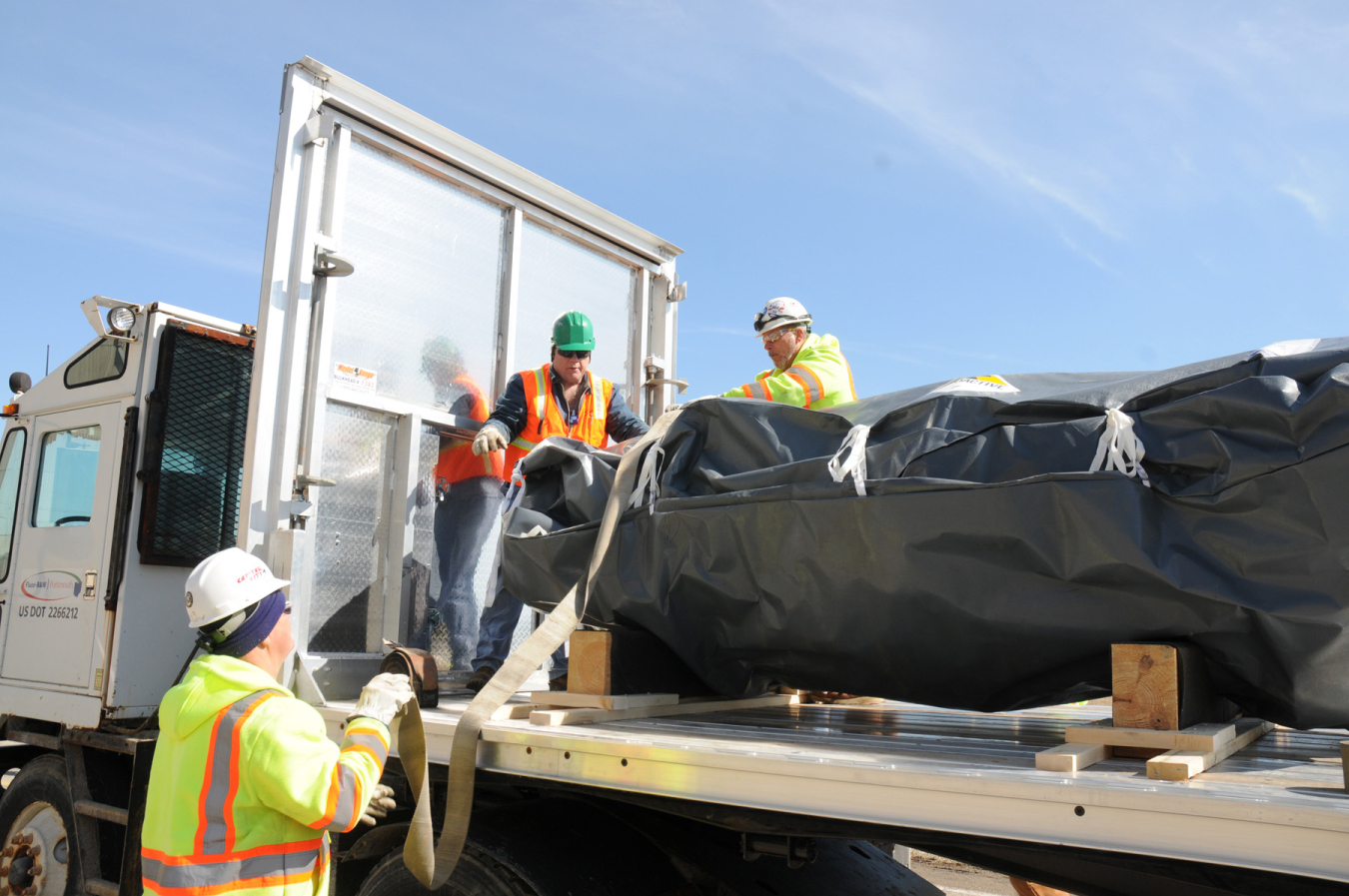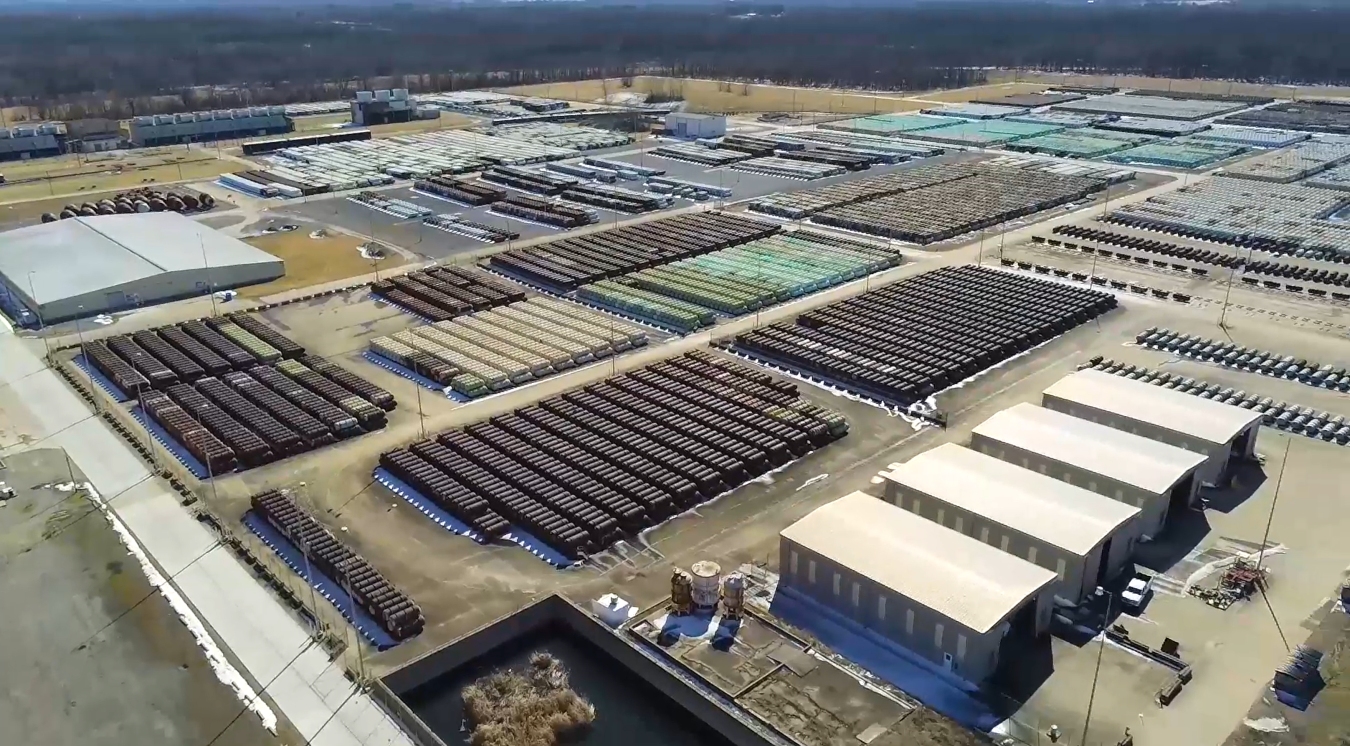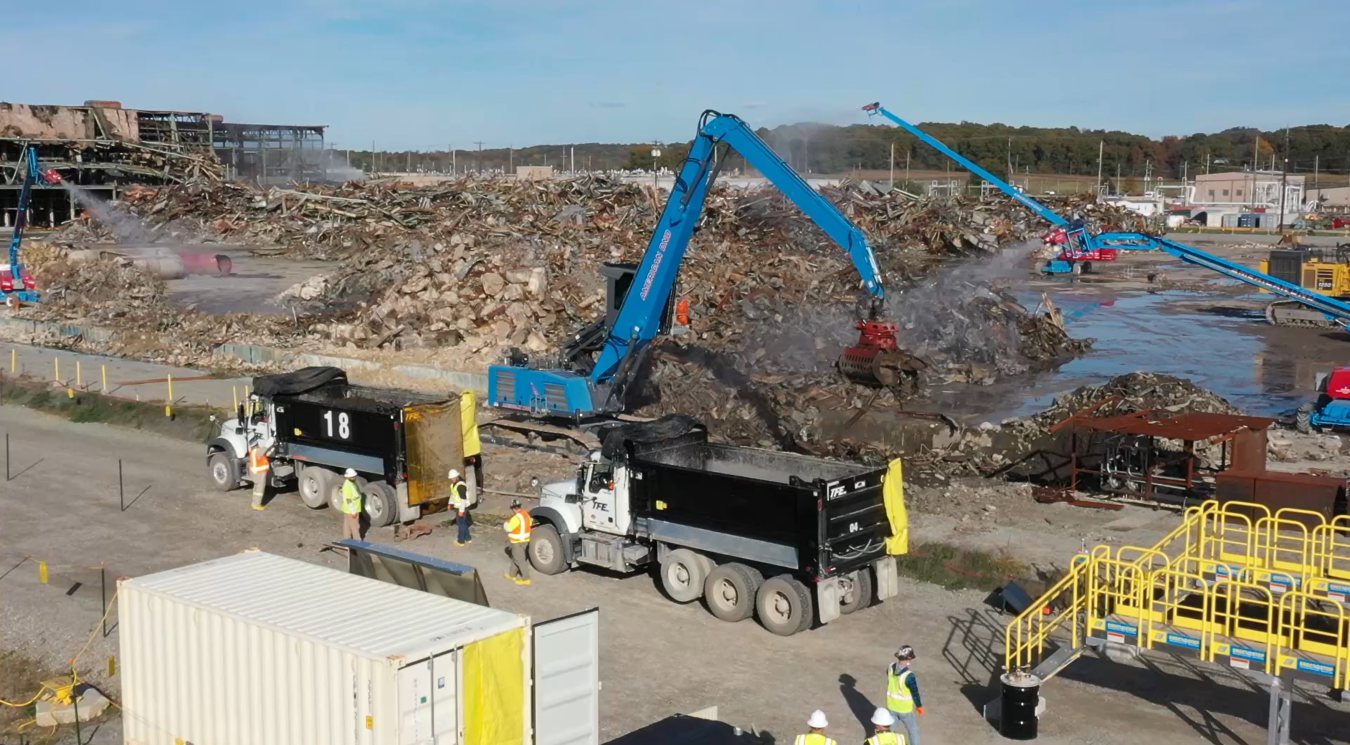The Portsmouth/Paducah Project Office (PPPO) manages the DOE cleanup efforts at two gaseous diffusion plant sites – Portsmouth (Piketon), Ohio, and Paducah, Kentucky. The PPPO mission is to accomplish Environmental Remediation, Waste Management, Depleted Uranium Hexafluoride (DUF6) Conversion, and Decontamination and Decommissioning at the Sites. Our goal is to accelerate cleanup, eliminating potential environmental threats, reducing the DOE footprint, and reducing life-cycle cost.
In addition to removing inactive facilities, DOE has taken aggressive steps since the late 1980s to clean up soil and ground water contamination at the Portsmouth and Paducah sites. These actions include removing contaminated soils and treating contaminated ground water. These efforts to protect human health and the environment are ongoing and driven largely by scientific investigations and analyses of environmental risks, regulatory requirements, and available funding.

PPPO manages large volumes of waste generated by past operations and current cleanup activities and is considering alternatives for large-scale disposal of such “legacy” wastes and those that result from the remaining cleanup activities at the Portsmouth and Paducah sites.

At its conversion plants at the Portsmouth and Paducah sites, DOE is converting its inventory of approximately 740,000 metric tons of depleted uranium hexafluoride (DUF6) into hydrofluoric acid for commercial reuse and stable uranium oxide for storage, reuse, or disposal. The DUF6 inventory stored at both sites resulted from decades of uranium enrichment operations.

Decontamination is the reduction or removal of contaminated radioactive material from a structure or object. Decommissioning is the process of removing a nuclear facility from service. Significant D&D of inactive facilities is ongoing at both the Portsmouth and Paducah sites. The bulk of the D&D work, including demolition of the large uranium enrichment process buildings at Portsmouth and possible demolition of those at Paducah, will occur in the future depending on available funding at both sites and regulatory decision-making processes at Paducah.

